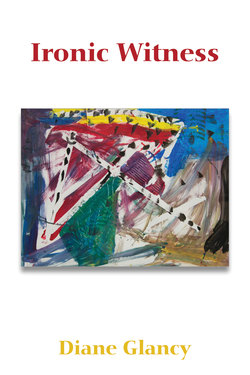Читать книгу Ironic Witness - Diane Glancy - Страница 14
На сайте Литреса книга снята с продажи.
What Is There in Ziggurats That Words Cannot Say?
ОглавлениеI made ziggurats—likenesses of Dante’s nine rings of fire—only my funnel went up, something like the tower of Babel. Nothing you see everyday.
My work shed, when I approached it in the morning, a steaming cup of coffee in my hand, the birds singing my path through the weeds, seemed a ziggurat itself. The roof started to rise, then was capped, or allowed to go unfinished. It actually was an attempt of Frank’s to let more light into the shed.
“A roof window,” he said.
“But I don’t want the light streaming down,” I protested. “I want light from the side—through the windows.”
Frank, not much of a builder, was unable to finish it anyway.
I couldn’t wait until my hands were slick and wet with clay and water. I could feel them in my hands even before I entered the work shed. Was it an old rebellion from having to be clean as a child, not allowed to play in the dirt that called to me?
All day I worked. I was hardly aware of anything except the birds that chirped in the windows—and Frank knocking on the window when he wanted lunch. On the road, there was a sign that pointed the way to my clay works: “Clay figures for sale, mainly ziggurats.” It was rare that anyone came. Rarer still that anyone bought my clay forms.
My husband stayed in the house translating the Bible while I was in my work shed.
“You should fix lunch for yourself,” I told him when I saw him at the window again.
“It’s for you,” he said. “ Otherwise you wouldn’t eat.”
Frank talked about his work at lunch, while I talked of my ziggurats. Our conversations rarely crossed the same intersection, unless it was our children—unless it was Daniel. But Daniel was dead. Daniel was dead, I assured myself.
“In time, you’ll get over your anger,” Frank said.
“I doubt it,” I answered.
—
In my work shed again, a yellow jacket at the screen sounded like a truck on the road in the distance. It had a particular growl as if it were plowing snow. Or maybe it was the mower on a far edge of the field. I looked up to see what season it was. Summer, of course. The summer of storms. Just as the winter had been.
Maybe the growling I heard was from my own throat. I had a bucket of water, a workbench on which to throw and knead the clumps of clay. A water-spotted page on which I calculated the sections for the new piece. What else would it be but a ziggurat?
The stouter ziggurats I made were hollow inside, or they were in sections. Otherwise, they could not be fired because of their thickness. No matter how slowly I fired them, I could not get rid of the water in the clay. In the early days, I had a graveyard for the ziggurats I had to discard. I could see their little humps through the window like small Indian burial mounds. My first kiln ran on house current. Sometimes, I ordered the pugged clay I used through the nearby college. They knew I was a potter. Why hadn’t I been asked to teach there? I could have talked about underglaze and my methods of overglaze. I could go back to the shaping of the clay in my hands. Clay becomes more pliable the longer you have it. Potters in China made clay for the next generation. Sometimes I told Frank that clay must have a Christian origin. No matter what I did, the clay was forgiving.
Sometimes I made my own clay, pouring the powdery material into a large bowl, my nose and mouth covered with a face mask, my hands and clothes covered with work gloves and an apron. Sometimes Frank made of list of dangers: borax, cobalt, lead, sulfite. I could have listed a few others.
“Look what you track in the house,” he repeated. “Look at your sleeves. I don’t want to eat lead for lunch.”
In my work shed, I had my jars of brushes with their arms held up. My bottles of mixed colors. The round tubs of my Skutt kilns. The UPS truck arriving in the drive with another hundred-pound sack.
